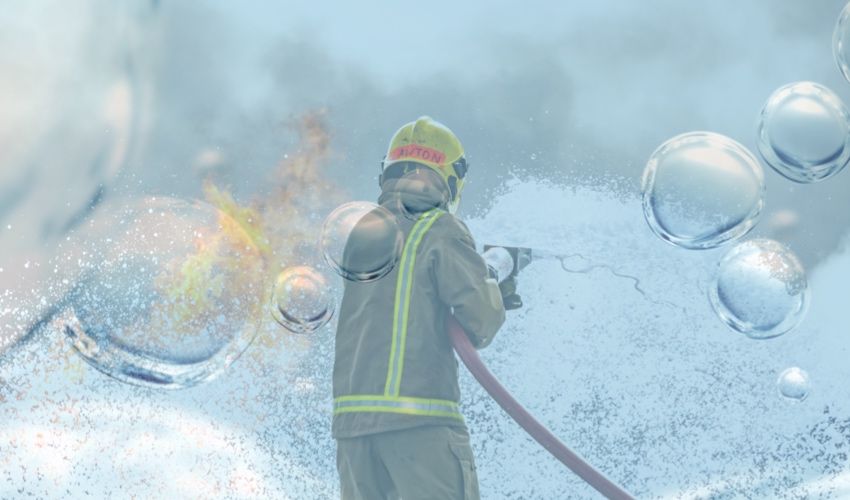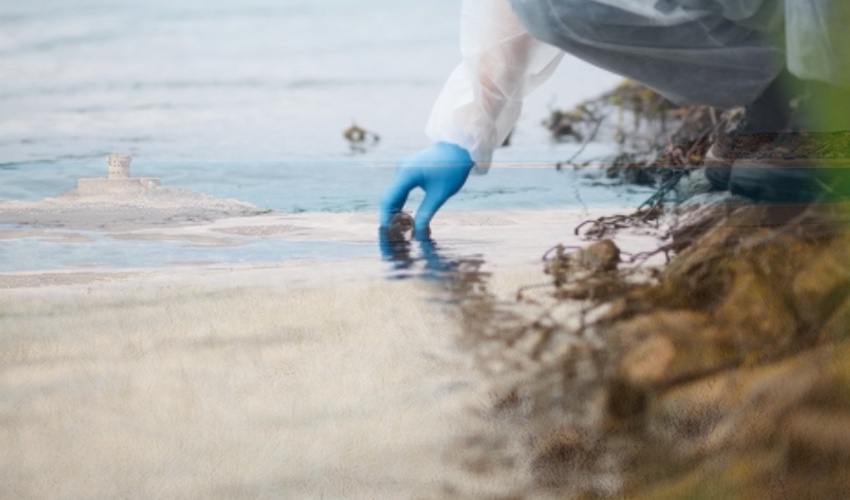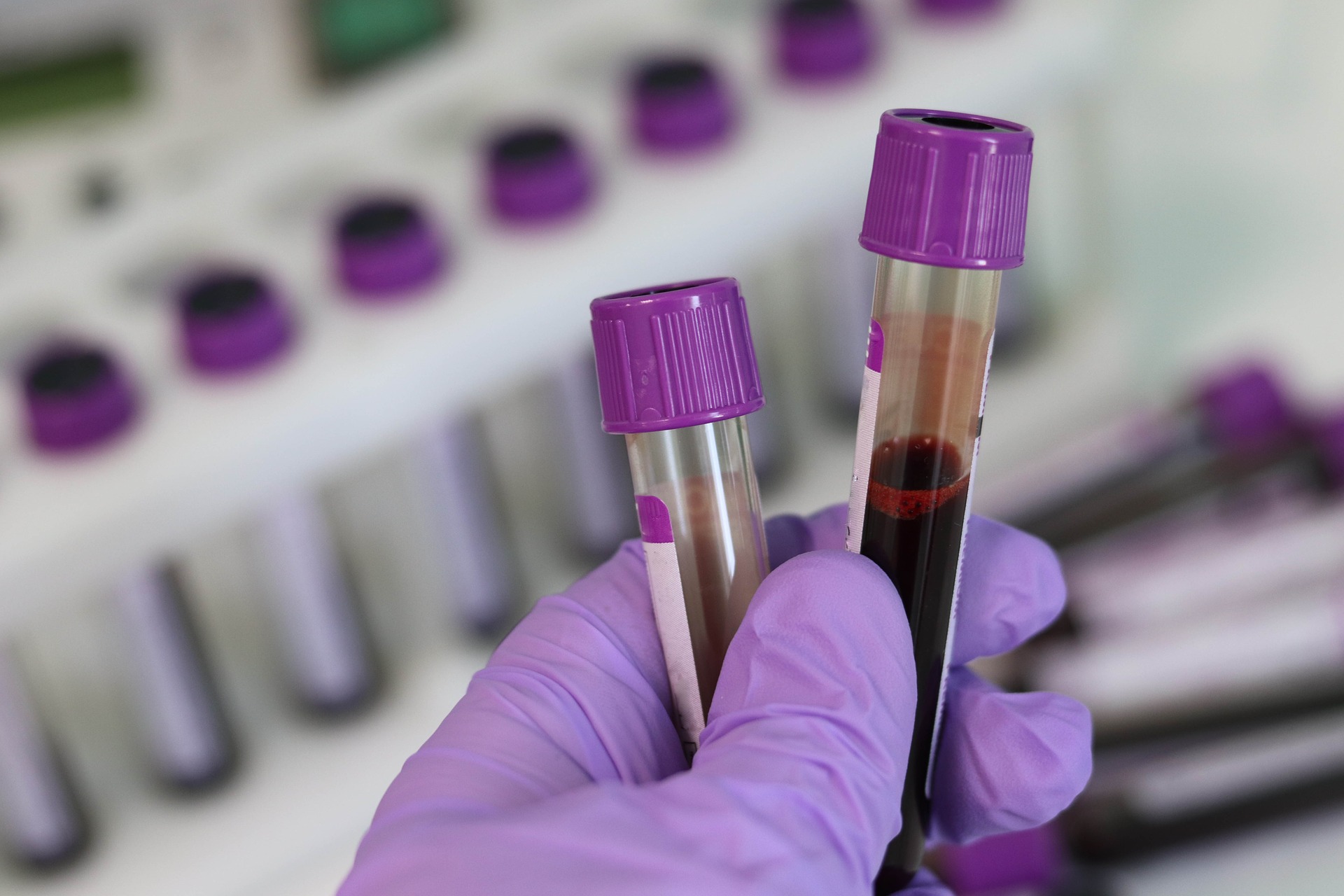


Jersey Water is testing a technology which could remove a toxic chemical linked to cancer, bowel disease and birth defects from contaminated sources around the island.
The company has run a trial using ‘Submerged Aerated Fixed Films’ to see if it successfully extracts PFAS from water.
PFAS is a manmade chemical found in trace levels in mains drinking water in Jersey.
However, it is present in far higher concentrations in streams, ponds and boreholes close to the Airport, where firefighting foam containing the carbon-based compound was sprayed until the early 1990s.
Because Jersey Water extract from boreholes in areas of contamination, albeit at reduced levels, PFAS is present in drinking water; however, the company say it meets the highest international standards and its water is safe.
Those standards continue to evolve as more is known about the effects of PFAS on the human body.
Pictured: PFAS was the subject of the 2019 film Dark Waters, starring Mark Ruffalo.
Recently, the Environmental Protection Agency in the US set new advisory limits for two of the many thousands of PFAS compounds that exist, including PFOS, which was in the firefighting foam due to its ability to suppress heat and fuel.
The advisory limit for PFOS set by the EPA is 0.002 parts per trillion. The highest reading of PFOS found at Handois reservoir last year was 0.078 nanograms per litre, which translates to 78 parts per trillion.
Jersey Water Chief Executive Helier Smith said: “Drinking water in Jersey continues to meet stringent water quality standards set by both the UK and EU drinking water regulations.
“Jersey Water achieved 100% water quality compliance in 2021 and continues to work hard to maintain regulatory compliance across all parameters in the future.
“We have also modified our operating practices to restrict abstraction of water from sources with elevated PFAS levels - including St Ouen’s bay boreholes and Pont Marquet catchment - when overall water resources are healthy.”
He added: “We are acutely aware of the global focus on PFAS chemicals and the health concerns they pose.
“The latest health advisory values for certain specific PFAS substances released recently by the United States’ EPA are noteworthy by them being very low. It will be interesting to see how these values are translated into new federal regulatory water quality standards for PFAS expected to be announced by the US EPA in due course.
“Of particular note is that alongside the new health advisory values is the launch of a $5 billion fund to address PFAS and other emerging contaminants in drinking water in recognition of the significant investment required to address PFAS pollution and improve water quality in the USA.”
The Government has already said that it plans to update the Island’s 50-year-old Water Law, which does not specify any legal limit for PFAS.
It has also produced a number of other recommendations in attempt to reduce PFAS levels, including commissioning a hydrogeological survey of known areas of contamination and developing a household testing regime.

Pictured: The Government is carrying out a hydrogeological study of contaminated supplies in St. Ouen's Bay and the Pont Marquet area of St. Brelade.
Mr Smith said: “In anticipation of the Government adopting tight water quality standards for PFAS in the future, Jersey Water is proactively investigating options to manage PFAS risks to drinking water quality.
“In addition to the work being undertaken by the Technical Officer Group [the Government’s ‘taskforce’ on PFAS], the company has already engaged with expert consultants to help assess numerous concepts and options which we are considering to mitigate the island’s risk.
“Earlier in the year, we conducted a small bench top trial of an emerging PFAS removal technology to verify its suitability for our polluted water sources near to Jersey Airport.
“The results of the trial are imminent”.
In parallel with water testing, the Government has also launched a blood-testing scheme for islanders concerned that their health has suffered through drinking PFAS-contaminated water.
Giving an update on progress, a Government spokesperson said: “82 referrals were approved for blood testing. Results are expected in late August or early September, and further comment will be made once the results have been reviewed.
“The hydrogeological survey work is progressing well. Meanwhile, results from the recent subsidised sampling of private water supplies are due to the sent to households soon.”
It is understood that the 82 islanders who were referred by their GPs had a blood sample taken at the Hospital recently. Their blood will be sent to a laboratory in California for testing.
Campaigner Sarah Simon, who attributes health problems experienced by herself, her family and neighbours, to PFAS, said she welcomed the testing but raised concerns following the rejection by the electorate of two States Members who had supported the testing.
“With both Rowland Huelin and John Le Fondré no longer able to politically address the significant detriment PFAS has had on the environment and people of our island, I wonder which politicians will be taking forward the evident PFAS public health crisis we are living in?
“Let’s hope the newly appointed Health Minister fully comprehends not only the social and economic impact of PFAS but also the obvious lasting health implications it bares on all islanders and future generations.”
PFAS was used extensively in the post-War years following its invention in the 1930s in America. Its ability to resist heat and fuel meant it was added to many everyday items, including floor tiles, clothes, and kitchenware.

Pictured: 82 islanders have volunteered and then been referred by their GP to have their blood tested for PFAS.
However, from the 70s, concerns over its impact on health began to be raised, with the story of one US lawyer’s battle against a PFAS manufacturer depicted in the Hollywood film Dark Waters.
The use of PFOS at the Airport was first raised when residents living nearby discovered foam in ponds and wells. High concentrations of the chemical were identified, and the Airport paid for homes on boreholes to be switched to mains water.
In 2004, the Government reached a secret deal with 3M, the manufacturer of the firefighting foam.
Last year, Express revealed the terms of that behind-closed-door settlement, which involved 3M paying Jersey £2.6m, which was used to build a new fire-training ground at the Airport.
In exchange, the States committed to “forever release, acquit, discharge, and covenant not to sue 3M or any 3M entity in relation to any and all Airport claims.”
As part of the deal, Government became legally obliged to provide information to 3M to help the chemical giant defend claims made against it, including by islanders who believe their health has been damaged by pollution.
'Submerged Aerobic Fixed Films' is a filtration system which separates the PFAS from the water using small air bubbles. The chemical is removed in a concentrate that can then be disposed of safely.
Islander tests own blood in bid to prove chemical contamination
Comments
Comments on this story express the views of the commentator only, not Bailiwick Publishing. We are unable to guarantee the accuracy of any of those comments.